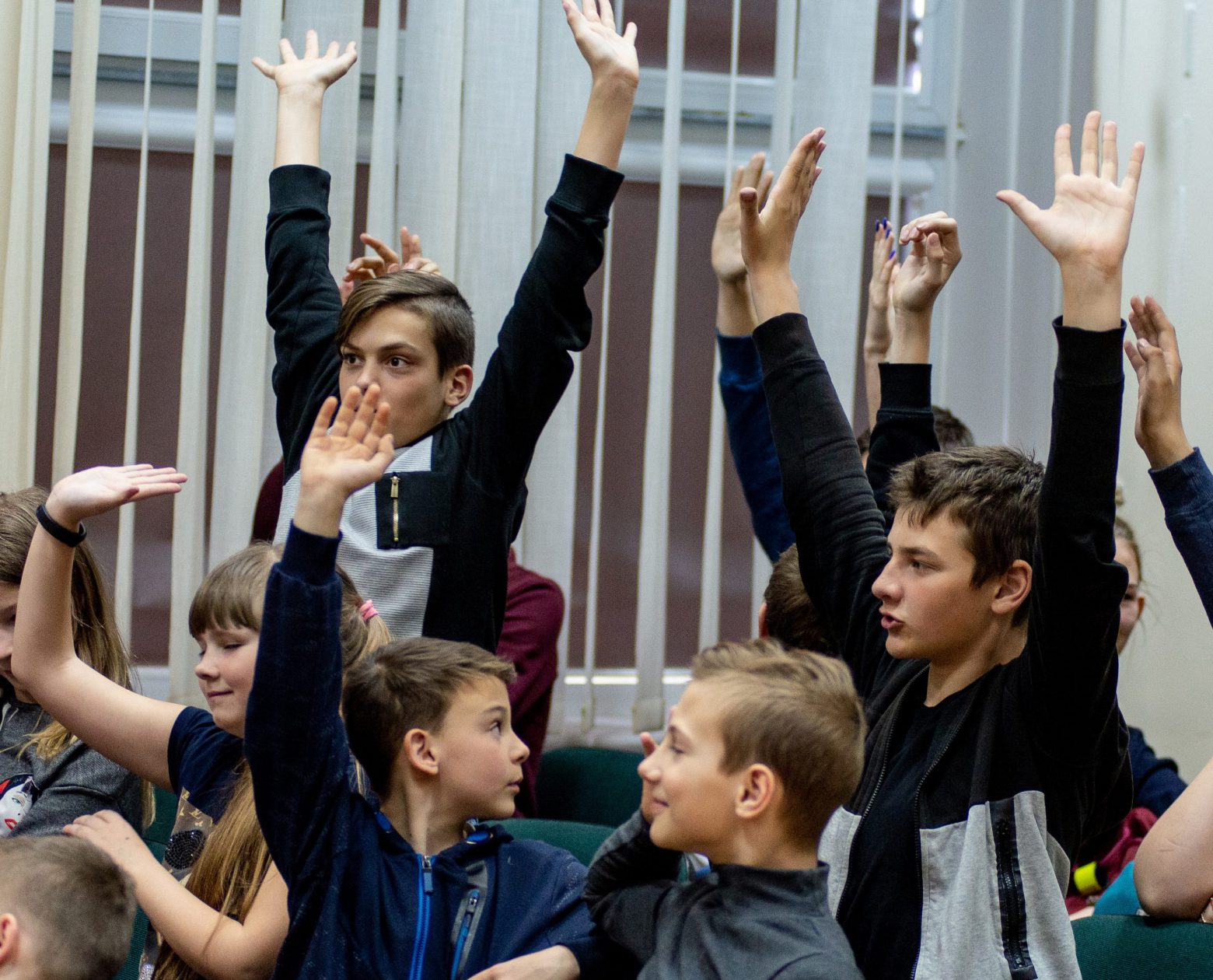Anti-corruption education
In this section you will find our research, reviews, and initiatives on the following topics: anti-corruption education and participatory budgeting in schools.

What's new?
Our Initiatives
Academic integrity, anti-corruption education in schools has been one of our priorities for more than a decade. A study (in Lithuanian) on youth integrity conducted in 2011 showed that more than 90 percent of Lithuanian students had cheated or had helped to cheat. Studies show that there is a direct correlation between cheating in schools and the general level of corruption in a country. It is necessary to solve the issue of cheating, and the encouragement of integrity should start in schools.
In 2014 we started to gather schools to “The Network of Schools for Integrity”, which now has more than 200 members. The goal of this network is to provide schools, which uphold the values of integrity and transparency in everyday lives of students, with the opportunity to plan and implement integrity initiatives more easily, find like-minded organisations, and share good examples.
In 2015 and 2018 we conducted “Integrity pledges” experiments with which we aimed to understand what it means to encourage students to behave with integrity. These experiments showed that such approaches as discussions and integrity pledges can reduce students’ determination to cheat.
For example, an experiment conducted in 2017 (in Lithuanian) in twelve Vilnius municipality schools showed that if students promise not to cheat before exams, they tend to cheat less. This was a first-of-a-kind experiment in Lithuania, which looked for ways to reduce cheating. During the experiment, Year 3 gymnasium students would sign under the integrity pledge attached to the test sheet before the exam stating: “I promise not to cheat during this assessment”.
After conducting the experiment in 2018 with 8 Kaunas city and Vilnius municipality schools, we found that discussions on cheating tended to reduce cheating tendencies. During the initiative, students were invited to participate in discussions and sign integrity pledges. The results showed that discussions had a significant impact on students who cheated often. Afterwards, the number of students who reported that they cheated one or more times a week decreased by a quarter — from 38,1% to 29,1%. Students who participated in the discussions and promised not to cheat were half as likely to support cheating of other students.
Additionally, since 2019 more than 30 schools and 38 districts in Lithuania implemented a participatory budget at least once (October 2022 data). Based on survey data from schools, which tried out participatory budgets, a number of students who stated that they understood well how their school budget worked increased by 8 times, while the number of students who stated that they knew nothing about school finance decreased by more than 2 times.
The Network of Schools for Integrity – is an informal initiative, started December 9, 2014, where any Lithuanian school which upholds the values of integrity and transparency can join. The aim of the network is to provide opportunities for Lithuanian schools encouraging these values to plan and implement integrity initiatives more easily, find like-minded organisations, as well as share good examples. The Network now has more than 200 members.
Participatory budgeting – is a way to decide on the use of public funds together with the community, when community members provide ideas to the municipality, school, or organisation and choose their favourite ones by voting. For more information, visit: www.dalyvaujamasisbiudzetas.lt
Integrity pledge – is a written commitment to behave with integrity during the given task. In schools and universities, promises of integrity usually come in the form of notes on assessments, and after signing them students promise to complete their work themselves, not to cheat, avoid plagiarism, etc. More information can be found here (executive summary in English).
- Participatory budgeting in schools practical guide, 2021 (summary in English).
- Practical guide “What encourages students to behave with integrity?”, 2019 (summary in English).
- The first integrity pledge experiment in Lithuania, which we conducted in twelve Vilnius municipality schools – “Cheating in school: integrity pledge experiment”, 2017 (summary in English).
- “Academic integrity – towards more transparent Lithuania”, 2015 (in Lithuanian).
- First “Lithuanian Youth Integrity Study”, 2011 (in Lithuanian).
- International anti-corruption day in schools:
“Most important value for students in schools – integrity”, 2019.
“Students from more that 60 schools create flags of transparency”, 2018.
“Integrity school” students will create integrity flags, 2017.
“Nearly sixty schools will have integrity initiatives for the international anti-corruption day”, 2016 (in Lithuanian).
“Half a hundred schools will hold public “integrity declaration” readings”, 2015 (in Lithuanian).
“Integrity school network” begins, 2014 (in Lithuanian). - Participatory budgets in schools:
“Participatory budgets increase civic and financial literacy”, 2021.
“Direct democracy in schools increases their transparency”, 2019. - Integrity research:
“Promises and discussions encourage students to behave with more integrity”, 2019.
“Students cheat less if they promise not to before assessments”, 2017 (in Lithuanian).
Otas
Our interactive transparency search system. Search for information about persons of interest, institutions, legislative acts, etc.



